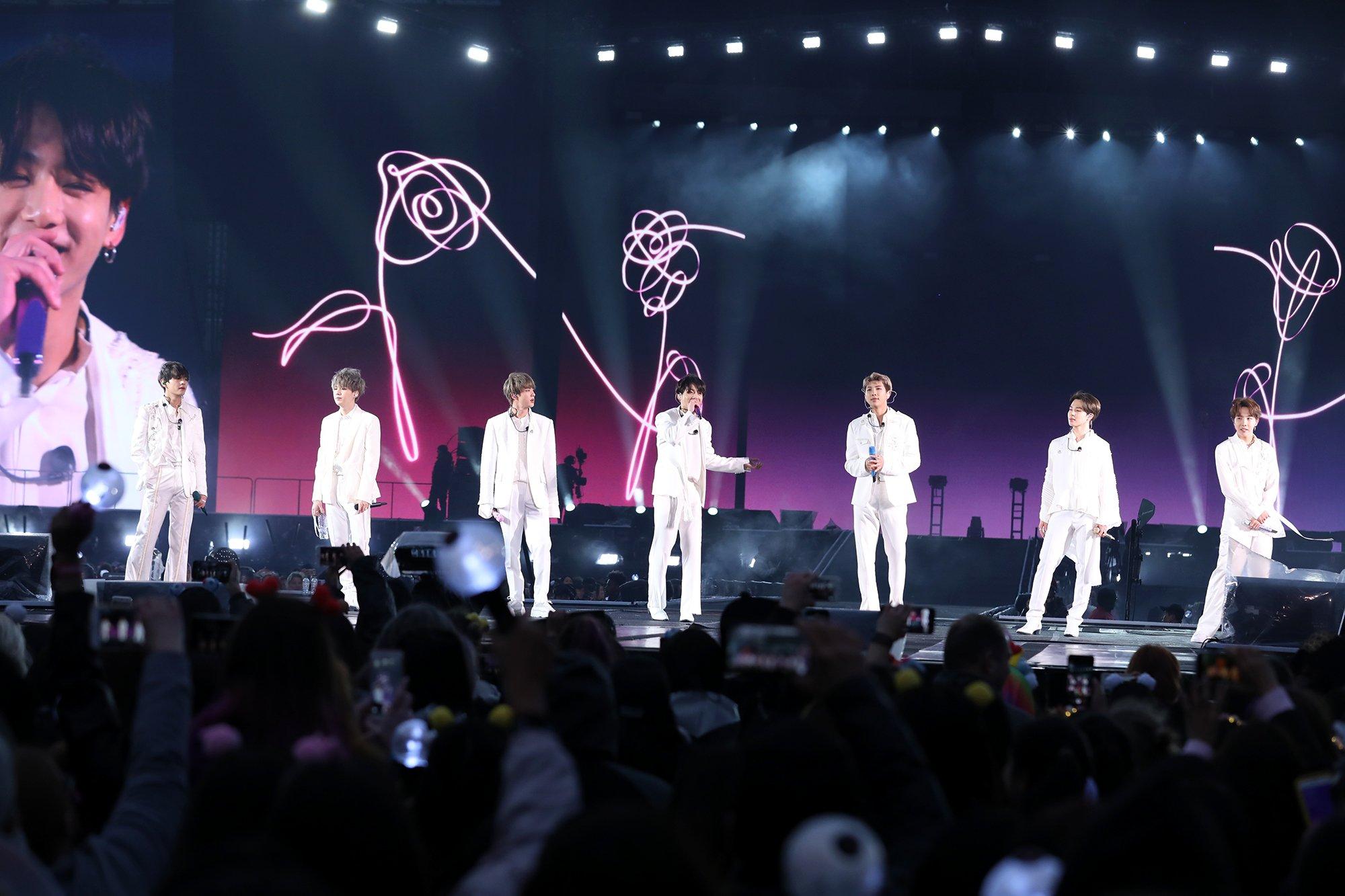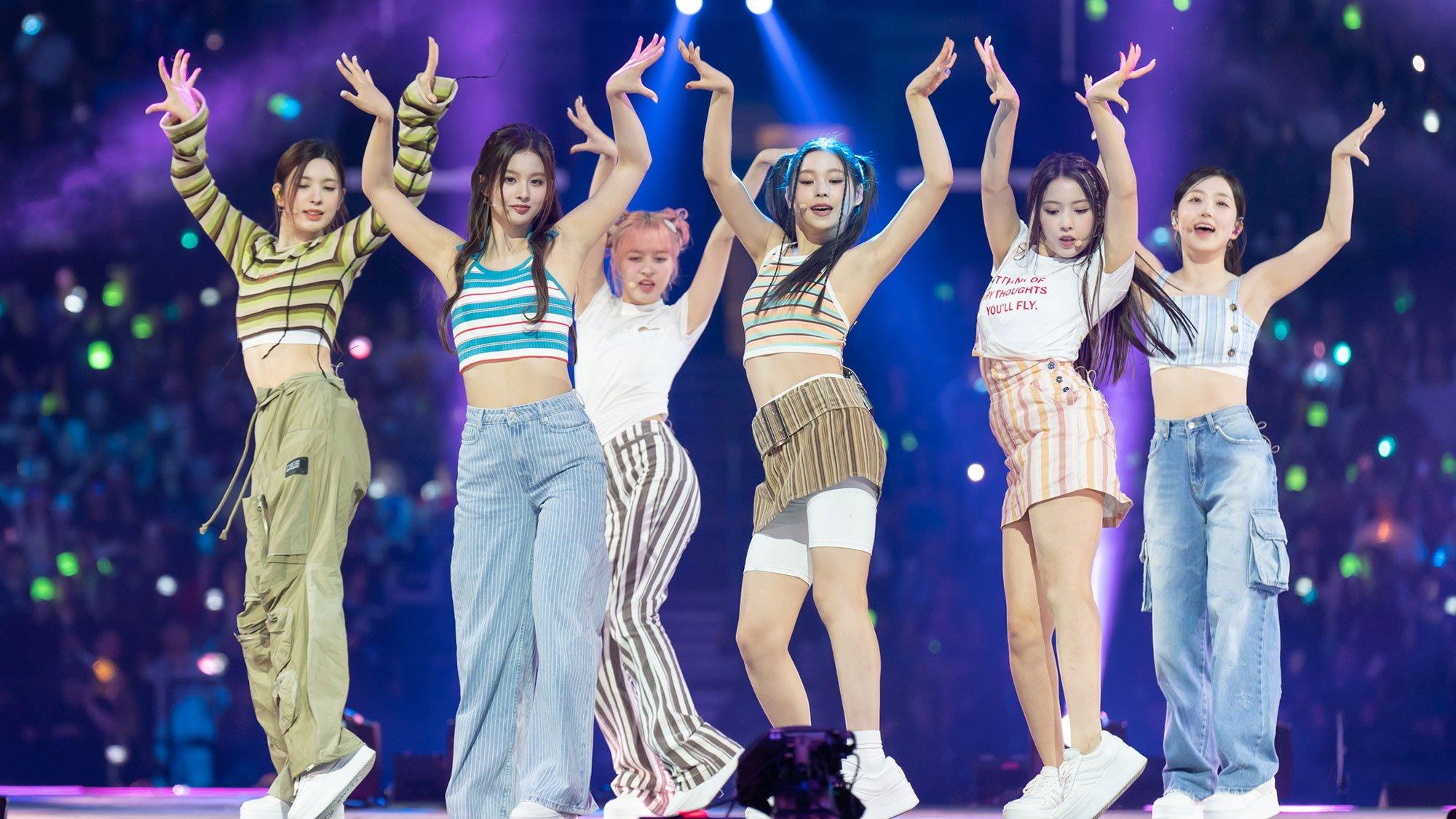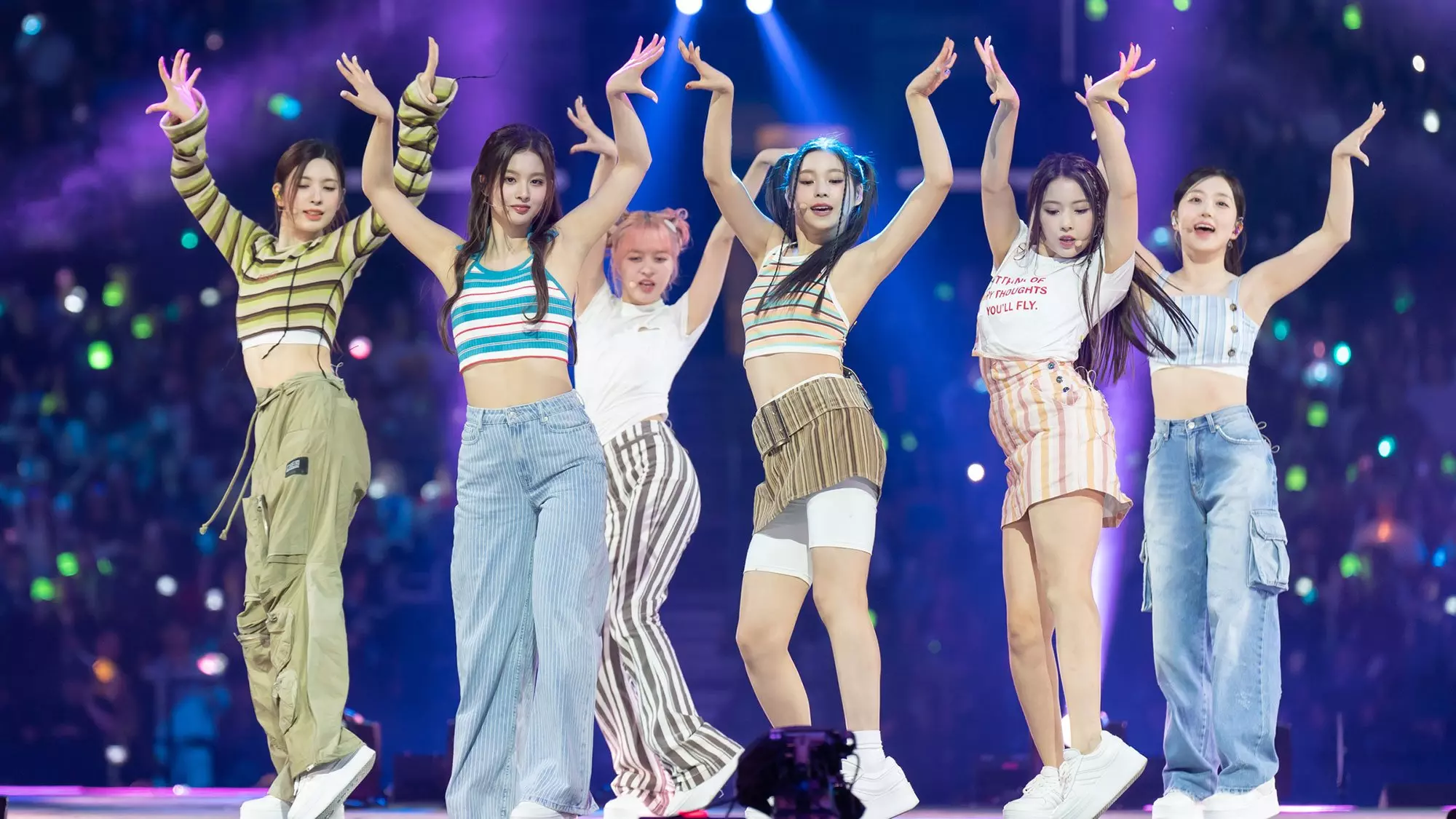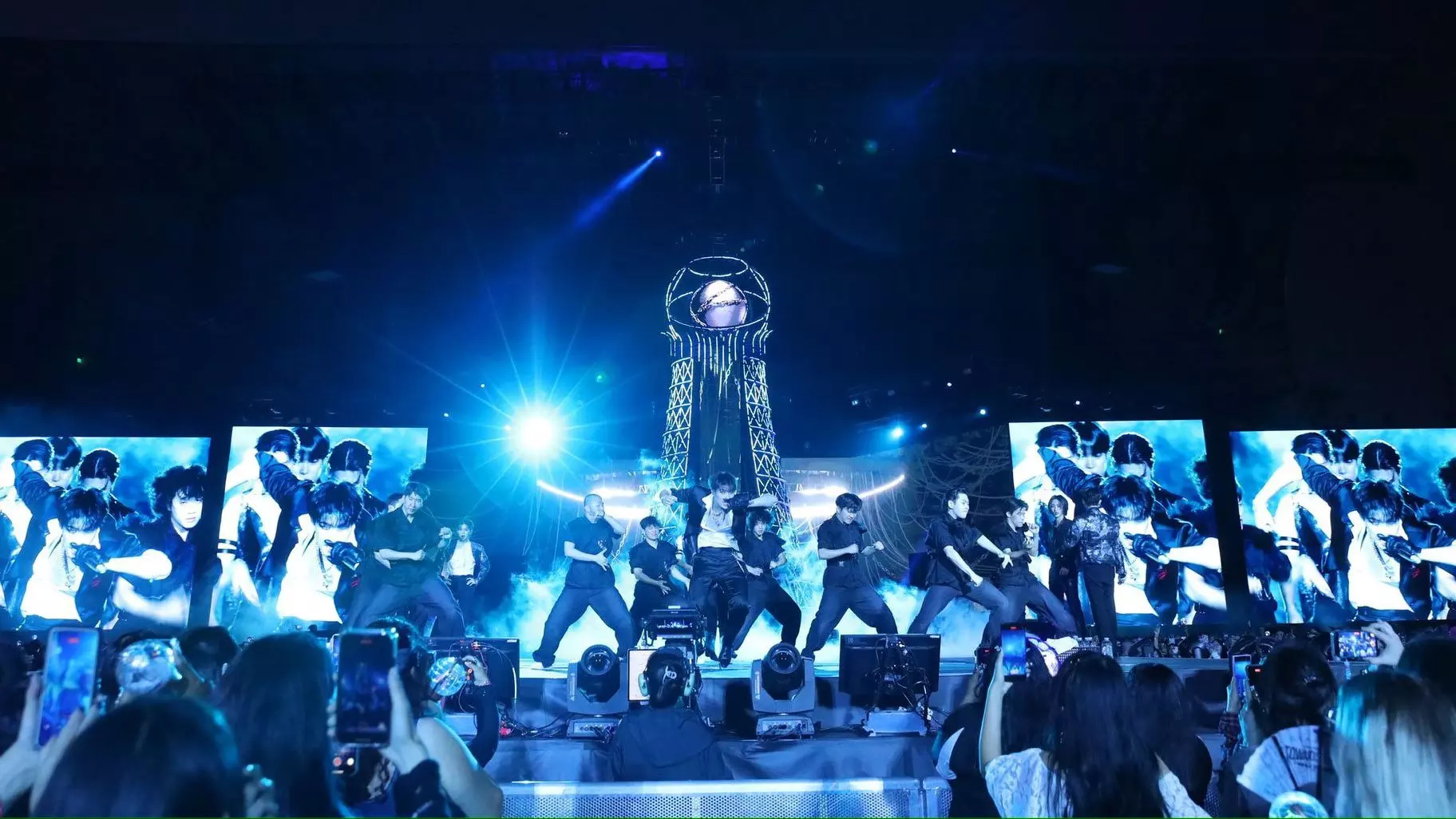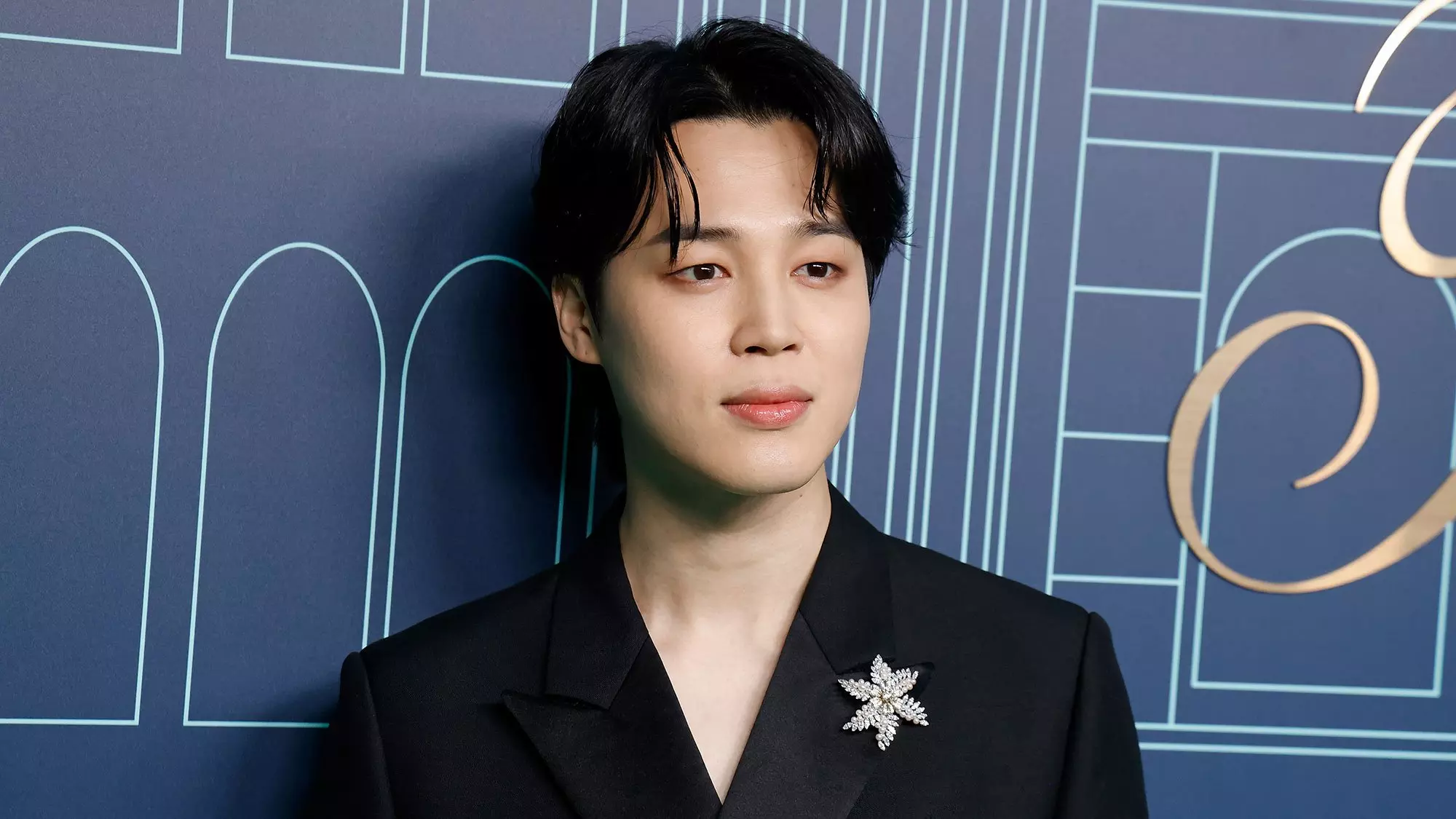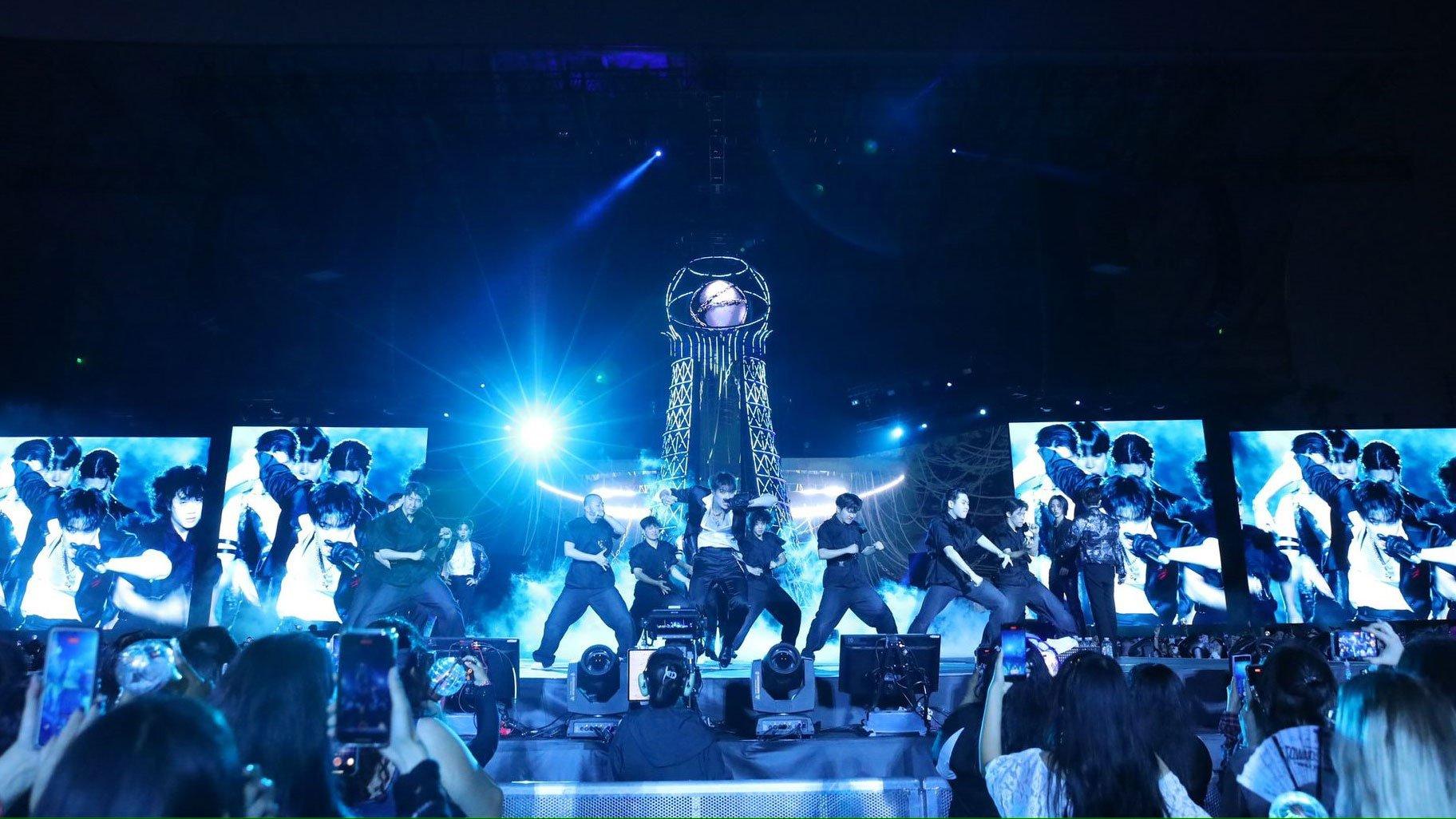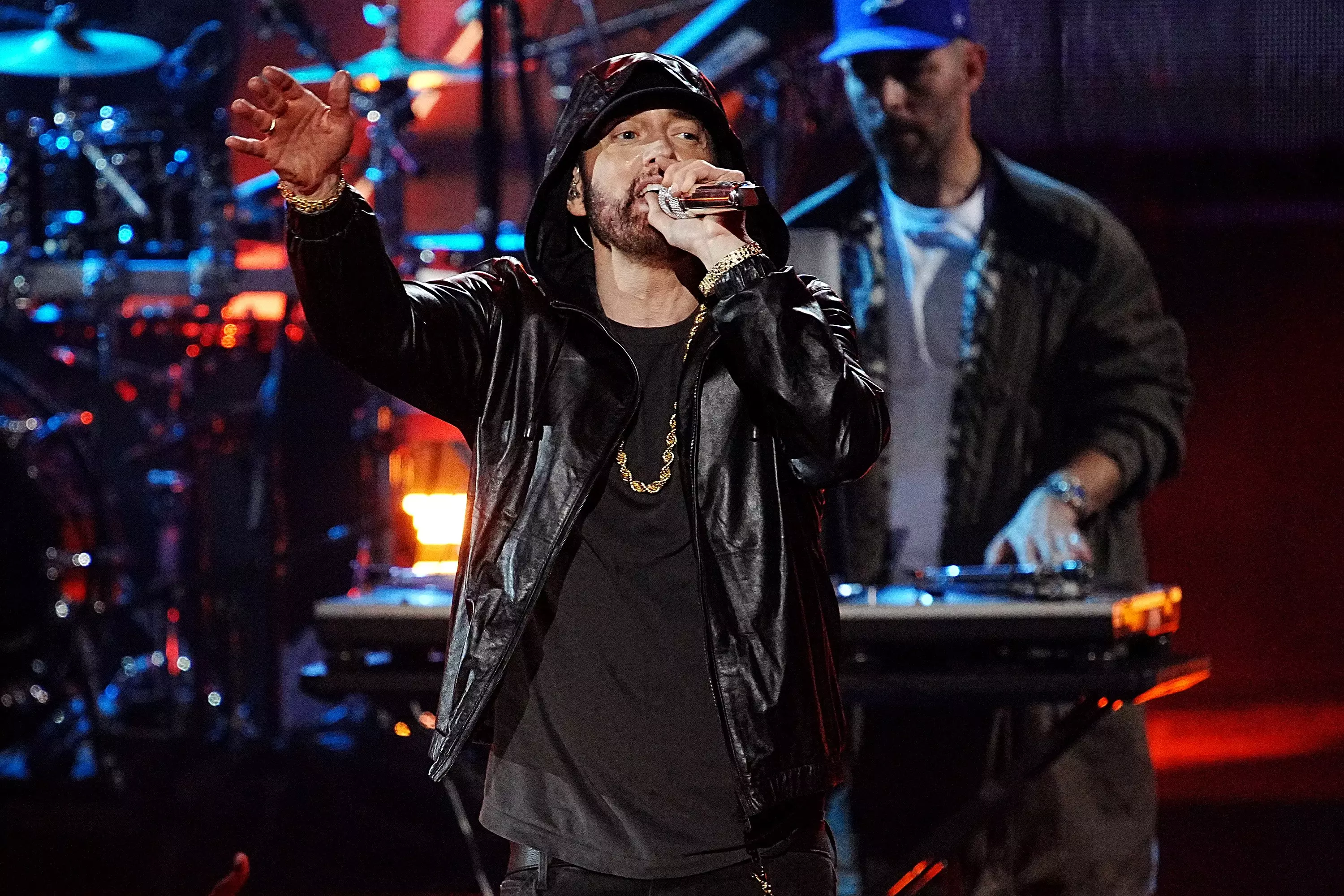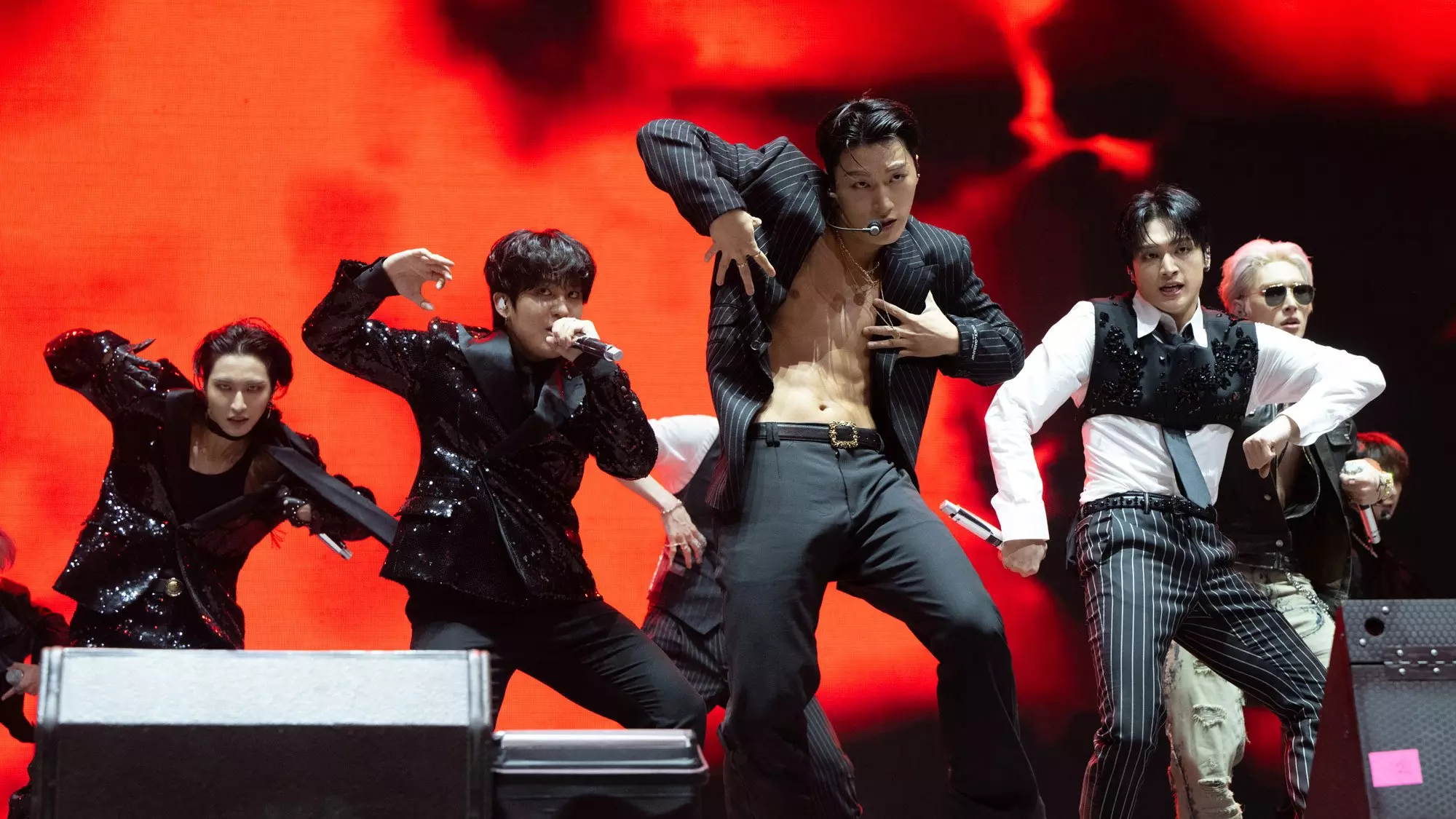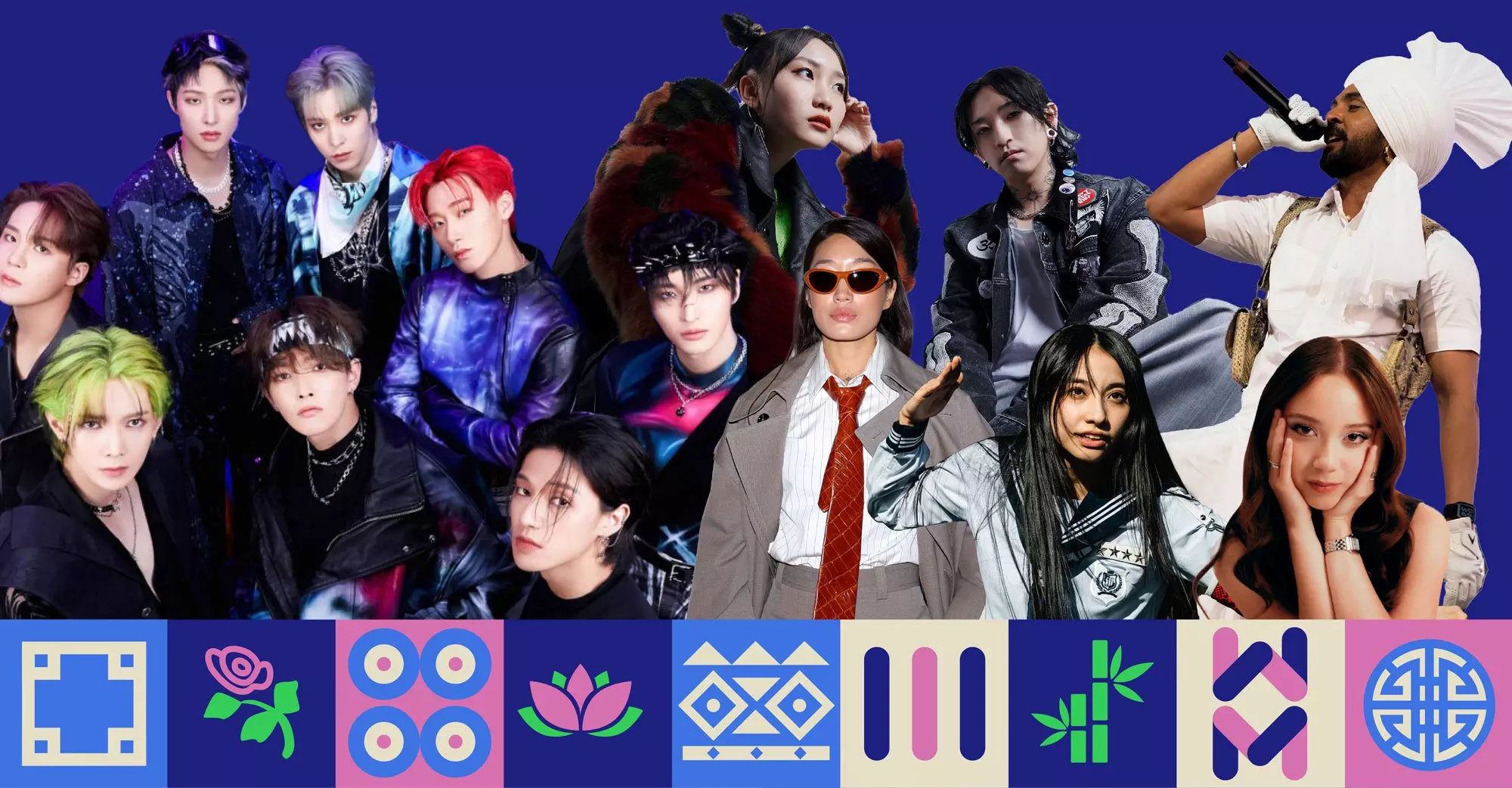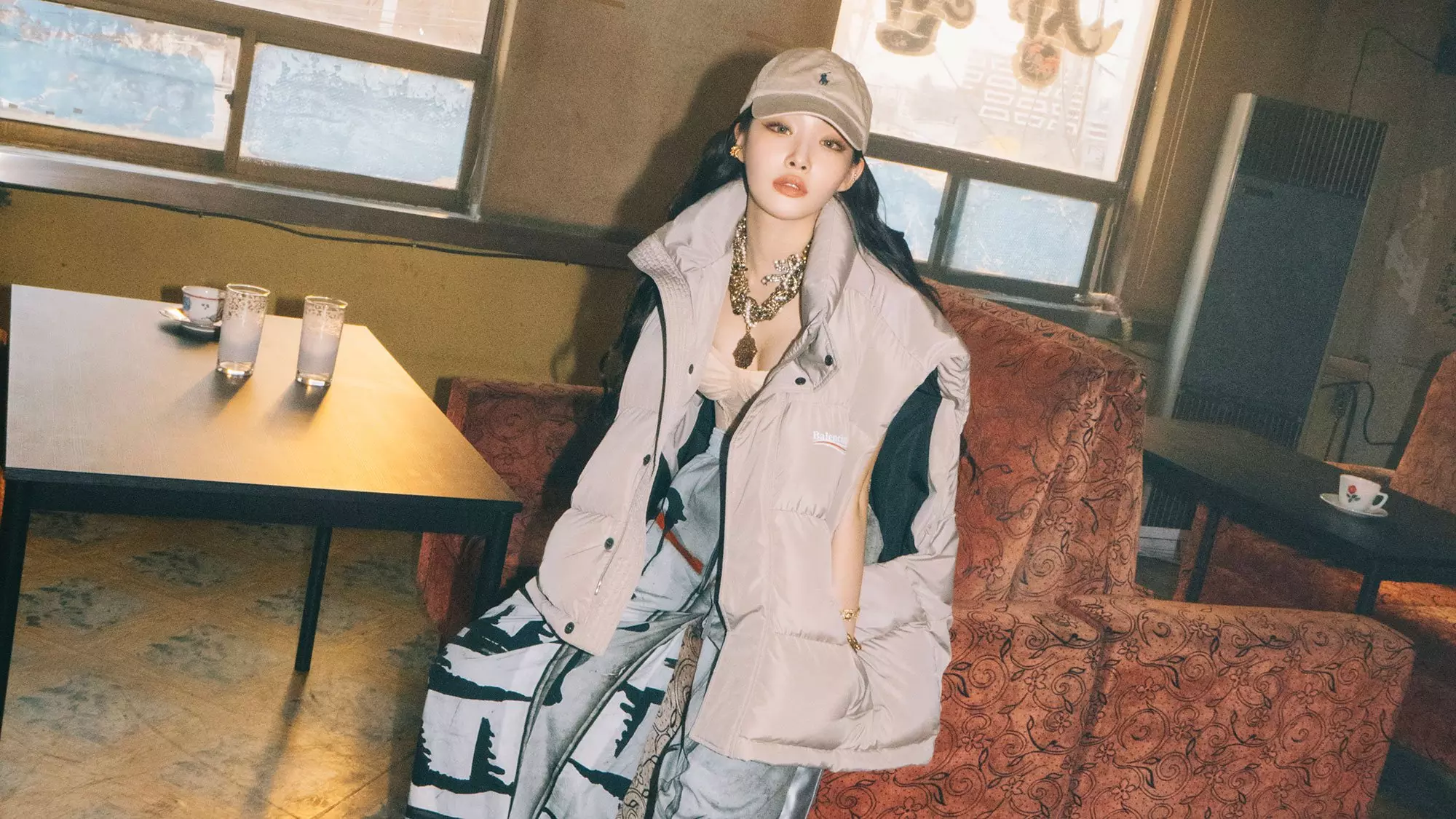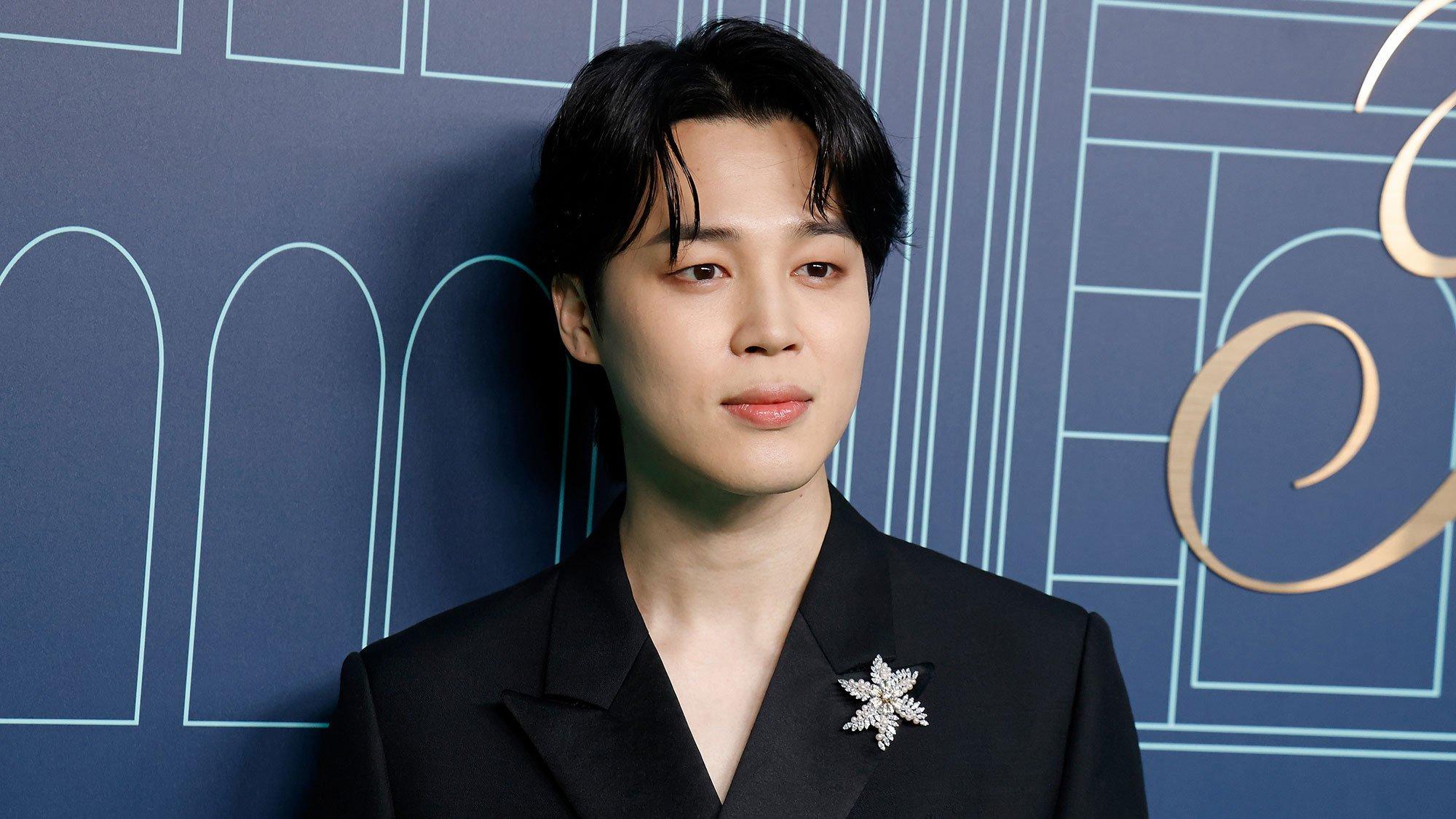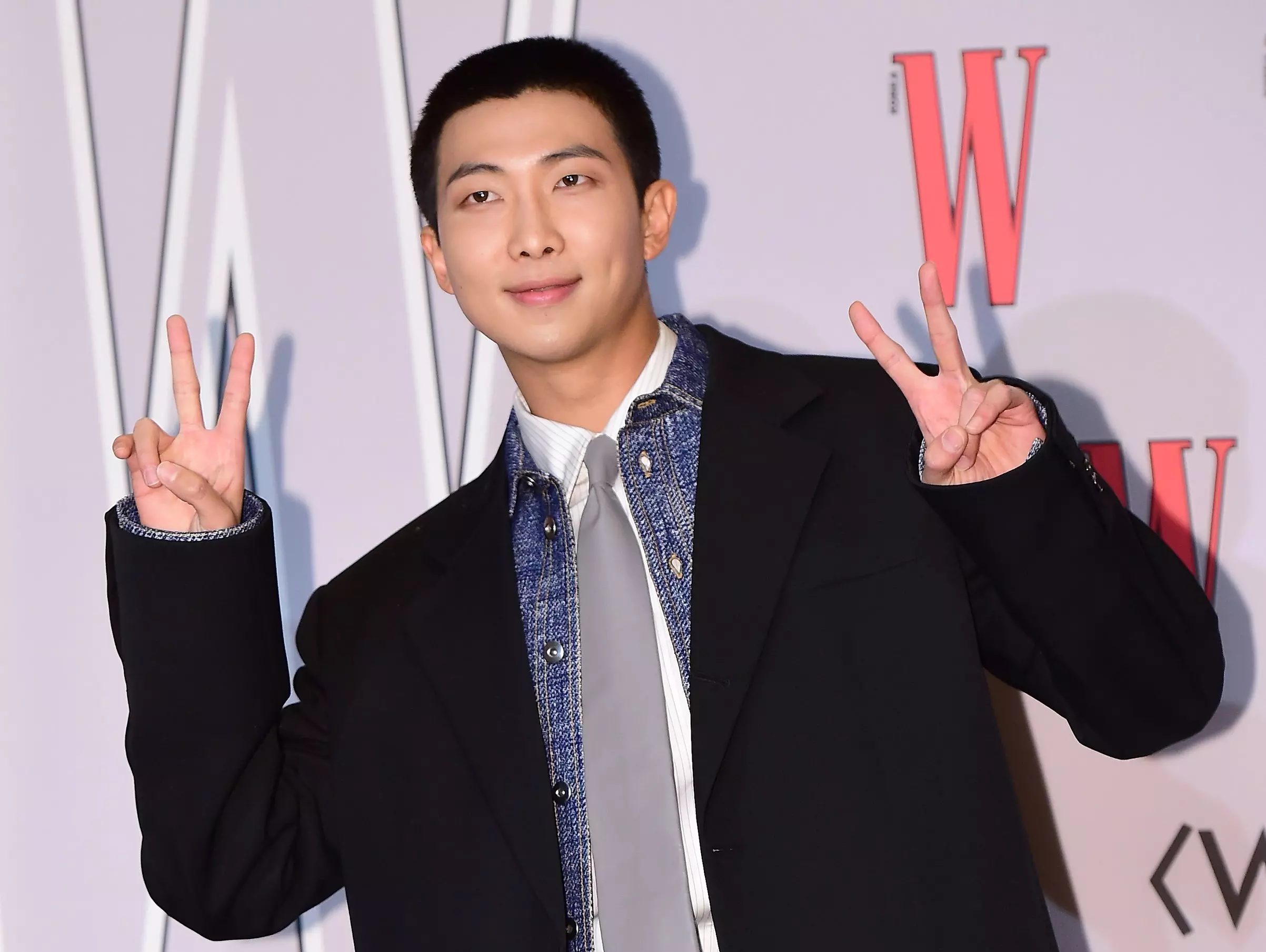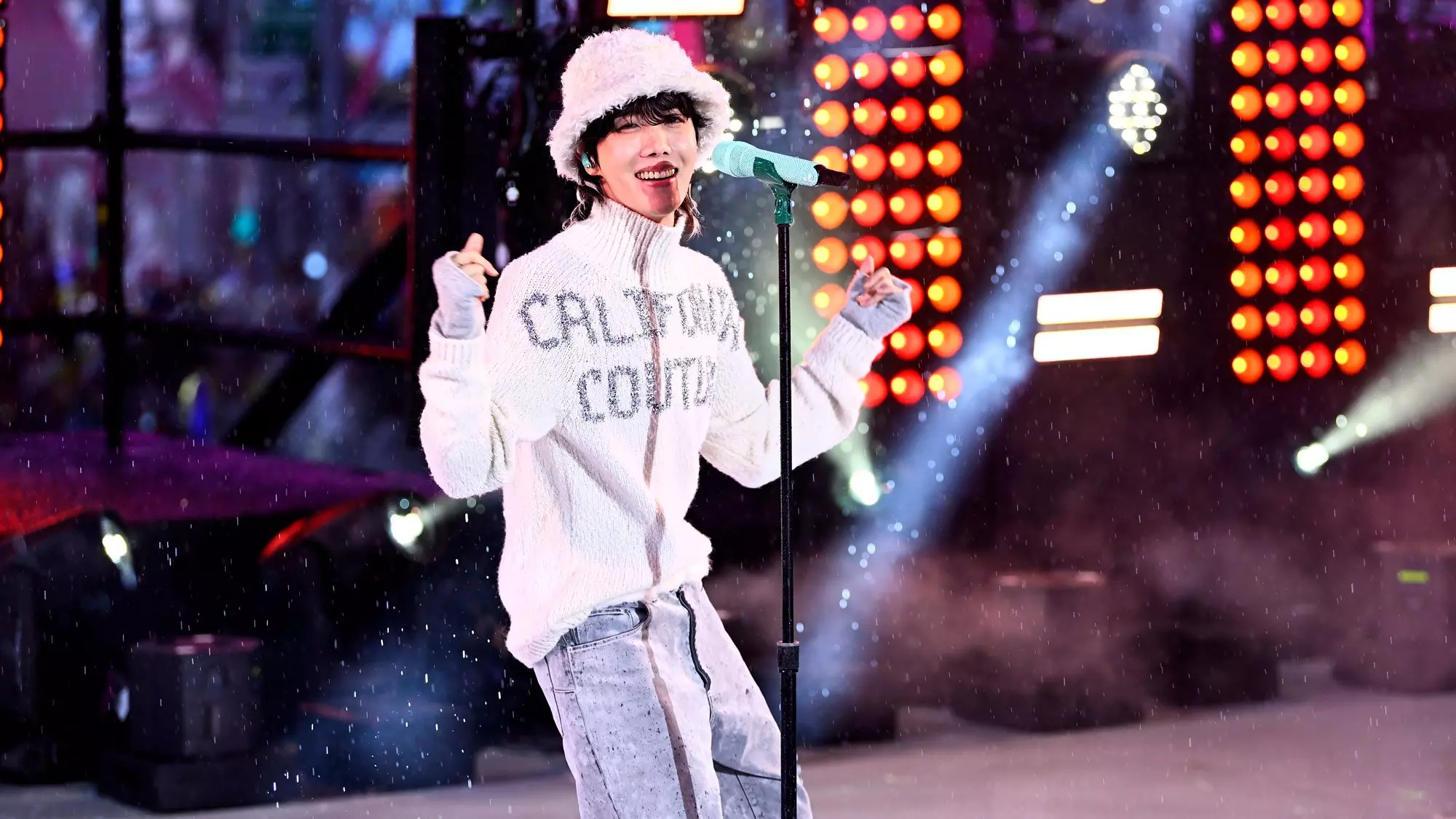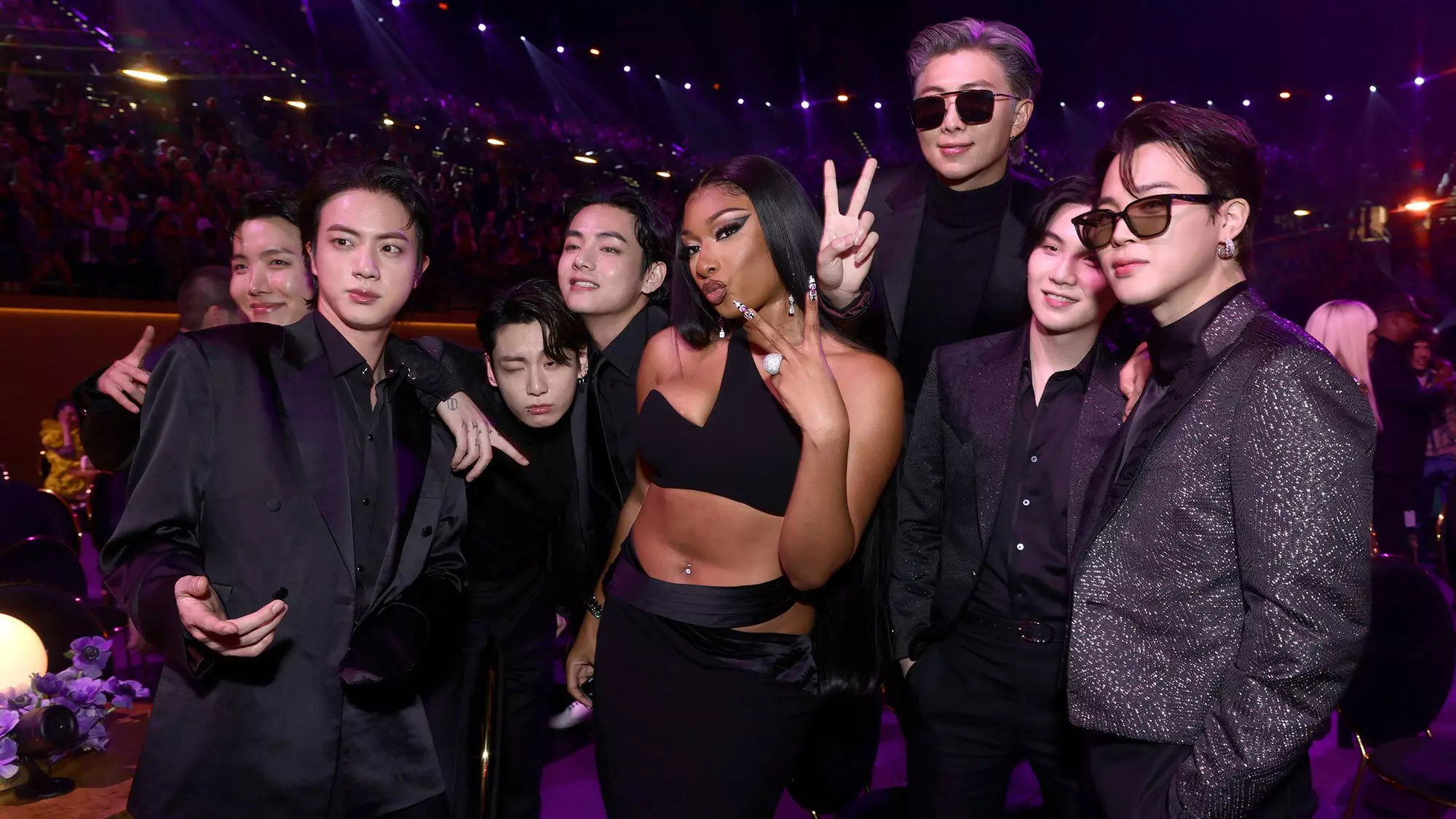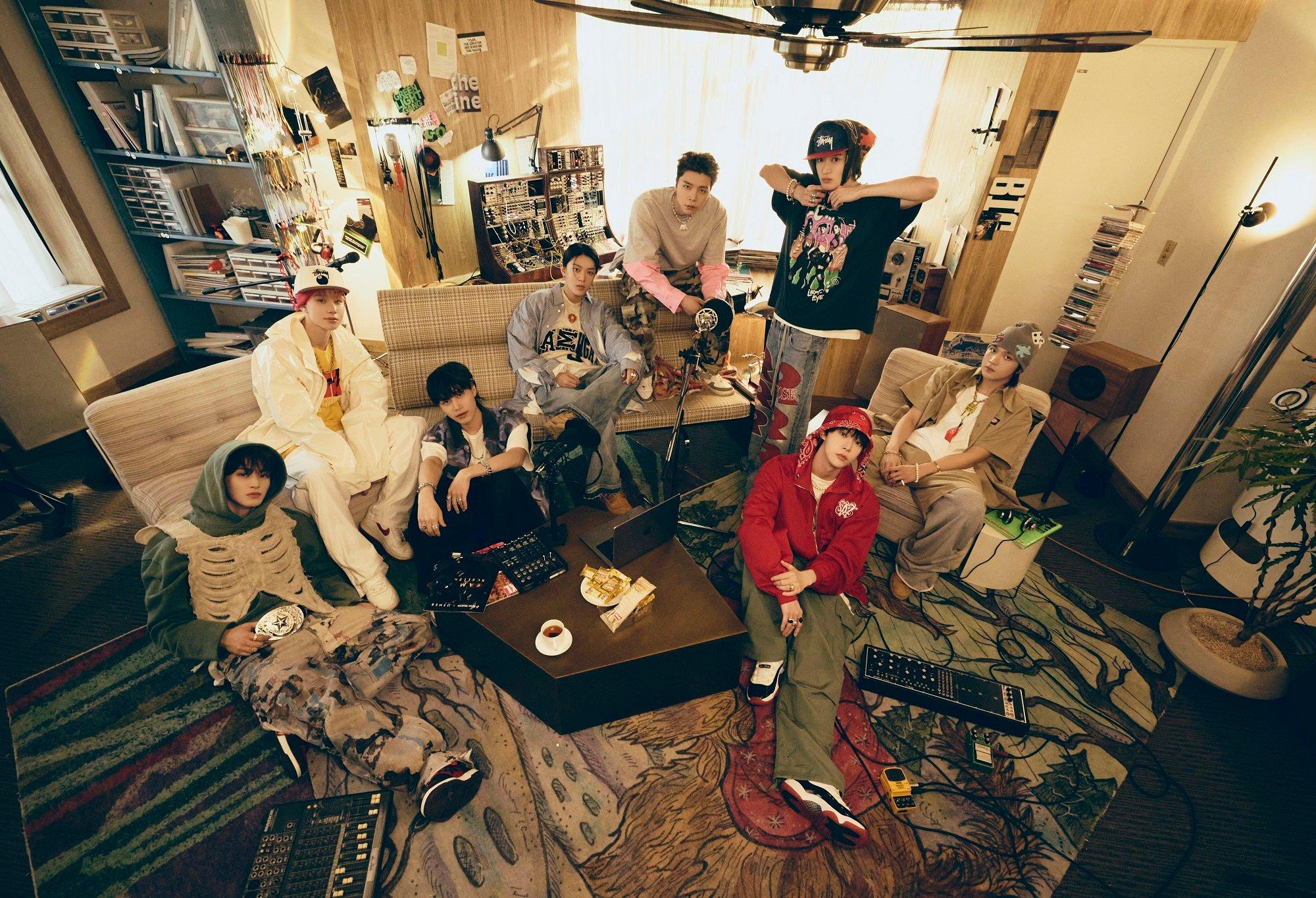In the K-pop industry, the Neo Culture Technology juggernaut stands out as a cosmopolitan universe. The project is characterized by its highly experimental approach, where each of NCT's subgroups contribute a unique twist.
This is especially true of NCT 127. Comprised of Taeyong, Taeil, Jaehyun, Johnny, Yuta, Doyoung, Jungwoo, Mark, and Haechan, NCT 127's identity was forged via innovative arrangements that defy convention.
During their rookie days, this ahead-of-its-time strategy felt polarizing and raised a few eyebrows. However, after some years of ambivalence (and with some lineup changes in between), they exploded in popularity during the early pandemic with their second studio album, NCT #127: Neo Zone. This record gave them their first title as million sellers, significantly increasing their listeners globally — many of whom embraced the group's music as an escape during quarantine.
Read more: Breaking Down The NCT System, From The Rotational NCT U To The Upcoming NCT Tokyo
Today, they are more influential than ever and their sound is more accepted in the ever-expanding scope of K-pop. Nonetheless, some K-pop listeners tend to pigeonhole the group as "noise," despite having a diverse catalog and some of the best vocalists of their generation.
Nearly coinciding with their eighth anniversary, NCT 127 released their sixth studio album, WALK on July 15. To mark this occasion, GRAMMY.com presents a song list — in chronological order — demonstrating their musical geniality, which extends far beyond the public's usual perception.
The group's first mini-album, NCT #127, laid the foundations of their audacious sound and paired it with vocal finesse. To wit, the lead single "Fire Truck" arrived as an unapologetic disruptor shaking up the K-pop industry.
But the bookends of the EP are uniquely contrasting. Whereas "Fire Truck" opens with bold posturing, the outlier "Switch" concludes the ride with a more lighthearted and youthful production. In a way, this song could also be considered a prelude to the NCT universe, as it was recorded a year before NCT 127's debut, and it features members of other NCT iterations — like WayV and Dream — when they were still trainees.
The name of this track is a statement of the group's boundary-pushing ethos. True to form, the song is built over a hammering backbone and lengthy synths that bite. The chorus is the highlight; its dynamic explosion of vocals only intensifies the momentum. And while the Korean version is strong, it could be argued that the Japanese rendition imbues the song with new layers of depth that truly elevate it.
It’s worth mentioning that, during the Limitless era, Doyoung and Johnny were added to the lineup, marking NCT 127’s first release with nine members — a move consistent with the original (now-defunct) concept of the NCT system.
Some songs are crafted for faraway souls and to offer solace to the aching heart. That's why "Sun and Moon," an evocative B-side from NCT 127's third extended play, exists as an unmissable gem.
It's a lyrical tale of longing, where Taeil, Doyoung, Johnny, Taeyong, Jaehyun, and Yuta serenade a distant love, hoping the gap will shrink and a reunion will come. The arrangement is understated but dream-like, and when the pre-chorus arrives, the most beautiful lines are unveiled: "When my moon rises/ Your sun rises as well/ Under the same sky/ In this different time/ Our hearts are connected/ Under the same sky."
Co-created by GRAMMY-nominated producer Mike Daley and multi-instrumentalist Mitchell Owens, "Come Back" exemplifies maximalism, undulating between intensity and elegance.
"One of the standout aspects of this song is the creative use of chops throughout the track," Daley tells GRAMMY.com. "Even though the arrangement follows a pretty standard structure for us, these chops add a unique flavor that sets 'Come Back' apart. We got to be more experimental [for this track] and bring in some unusual elements."
The voices of Taeil and Doyoung prominently take center stage, infusing potency that ensures smooth progressions throughout the production.
"Lips"
Featured on the group's first Japanese studio album, Awaken, "Lips" is an unjustly overlooked cut that blends sensuality with hypnotizing Latin rhythms. The deeper you are immersed in it, the more enchanting it becomes, casting a spell over your mind.
Its minimalist formula is effective, and the lyrics hint at a compelling journey: "Your lips come and take me to the place to go/ The place you would know where you should go." Sometimes, less is more, and the impact can be equally powerful.
"Highway to Heaven" shines as one of the crown jewels in NCT 127's discography, praised not only for its cathartic production but also for marking a turnaround in their artistry. It sees them delving into more subdued and ethereal soundworlds.
A pre-release single from their fourth mini album, We Are Superhuman, the instrumental is woven with buzzy percussion and silken guitar strings. The group's vocal prowess truly exhilarates, crescendoing a declaration of freedom during the chorus: "We'll take the highway to heaven/ Any time, anywhere I feel you/ You and I, highway to heaven/ This place where we're together is heaven."
The track reaches its pinnacle with an interlude guided by Jungwoo's velvety delivery, eventually setting the stage for Haechan's soaring voice.
"Superhuman," the lead single from We Are Superhuman, is a timeless masterpiece. The avant garde song showcases the group's expansive adaptability, exchanging their usual edge for intricate sophistication.
American singer/songwriter Adrian Mckinnon — a frequent collaborator of SM Entertainment, home of the NCT project — teamed up with South Korean producers TAK and 1Take to bring the song to life, and he recalls being "blown away" when he listened to the instrumental. "All the glitches and stutters immediately gave nostalgia," Mckinnon tells GRAMMY.com, noting the sound choices reminded him of old school video games. "[The song] kind of sits in its own lane, maybe somewhere between glitch funk and glitch hop. Maybe a little Daft Punky too?"
Mckinnon says he sat with the instrumental track for half an hour before recording his vocal ideas. "I wanted to absorb it in its entirety before trying anything."
He also explains that they created the song without a specific group in mind, so he was excited to discover the song was placed with NCT 127. "I think this speaks to the versatile nature of the group because they executed the track very well and were able to make it their own. It's easily one of my favorite songs I've been a part of."
Another piece from Daley and Owens, "Love Me Now" pulses with gentleness and heartwarming nostalgia. It's a song made for those days when everything feels right in place.
Daley recalled working on "Love Me Now" during a K-pop songwriting camp in Seoul, and says he refined an existing track. "Most of our stuff is tailor-made for artists in Korea, but this track was very much a U.S. pop/dance radio-sounding track," he says. "It doesn't feature a ton of sections, switch-ups, or the musically intricate bridge that a lot of our K-pop songs normally have. It's very minimalistic, bright, and centered, and sometimes that's all you need."
He observes the creation process of "Love Me Now" was more straightforward than "Come Back," as the latter contains the usual elaborateness of K-pop productions. "That simplicity in ['Love Me Now'] lent itself to making a very catchy, memorable record that was easy to digest."
By NCT standards, "NonStop" — from the repackaged album NCT #127 Neo Zone: The Final Round — is a B-side that overflows with the potential of a lead single. It's an amalgam of unburdened rap verses and cohesive vocals that glide effortlessly across a cutting-edge production.
Adrian Mckinnon explains that he and Kenzie chose the track from a selection created by the British production duo LDN Noise due to the magnetic pull of the intro. "The arpeggiated tones and the crazy melody of the lead synth immediately took us to the future," he says. "The chord progression and the rising energy out of the pre-chorus — it all felt like some high-speed race through some futuristic city."
The development of the structure proved quite challenging, but the end result encapsulated the intended concept. "Listening to it in its final form, you would think the sections were obvious, but each of the melody and topline — including others that didn't make the song — all felt quite hooky," McKinnon shares. "But since you only have so much 'song,' you must pick your favorite bits and massage the ideas together. That's how we arrived at what 'NonStop' came to be."
"First Love"
A burgeoning romance transforms into the dulcet melodies that define "First Love," a B-side from NCT 127's second Japanese EP, Loveholic, released in February 2021. Excitement beams throughout the lines of the song, capturing the world of possibilities that come with finding the person you've always dreamed of.
When the group leans towards professing love in all its shapes, they do so with a rawness that percolates through their voices, easily perceptible to all. And here, they opt for a playful and tender side.
"Breakfast"
Off of their third full-length album, Sticker, "Breakfast" is distinguished by its harmonic richness and stunning vocal arrangements.\
The track emerged from a collaboration in which Swedish producer Simon Petrén devised the sonic framework, complemented by GRAMMY-winning songwriter Ninos Hanna and songwriter/producer Andreas Öberg. "As the melody ideas evolved, the song was also developed and built up to match the topline," Öberg tells GRAMMY.com. "The original demo was called 'Breakfast' and tailor-made for [the group]. SM Entertainment decided to release this song with them shortly after we submitted it."
Öberg describes the composition as "an interesting hybrid," with the original demo molded to be "a modern dance/house record while still using advanced chord progressions not only with influences from jazz and fusion."
He also cites Michael Jackson as an inspiration, drawing from "his unique style of switching between minor and major tonalities."
"Favorite (Vampire)"
After releasing Sticker, NCT 127 wasted no time and quickly followed up with a repackaged album centered around the hauntingly resonant "Favorite." A brainchild of Kenzie, American producer Rodney "Darkchild" Jerkins, and singer/songwriter Rodnae "Chikk" Bell, this record is the most tempered of all the NCT 127's title tracks.
A whistling sample introduces a thumping trap beat that rapidly unfolds into piercing lines — courtesy of Taeyong and Mark — that slice through the song. But as we hit the road toward the chorus, "Favorite" veers into a more vocally-driven approach, a splendid transition that balances its core. In classic SM style, the bridge is a triumph, with Doyoung, Taeil, and Haechan pouring their hearts out as if they've been shattered into a hundred pieces.
Listening to "Angel Eyes," a cut nestled in the middle of their most recent release, Fact Check, is akin to a healing escape. From the first seconds, pure bliss fills the air and quickly transforms into an open invitation to lose ourselves in the music.
"Paradise, like an angel fly/ With your wings, make me fly through the brilliant world/ My delight in all the days and nights/ Even in darkness, make me dream the greatest dream," they sing in the last chorus, prescribing optimism atop a layering reminiscent of the '80s.
One of WALK's B-sides, "Pricey" boasts a delightful instrumental with thick basslines and a fusion of piano and guitar chords. Although the rapped chorus momentarily threatens to stall the pace, vibrant ad-libs — growing more captivating as the song progresses — quickly pick it back up, perfectly aligning the overall effort with their unique sound.
"Pricey" was originally intended for the American market, which makes it all the more inexplicable that it was tucked away in the NCT 127 vault for so long. Thankfully, it's now receiving the spotlight it deserves – it's simply too remarkable to remain unearthed.

